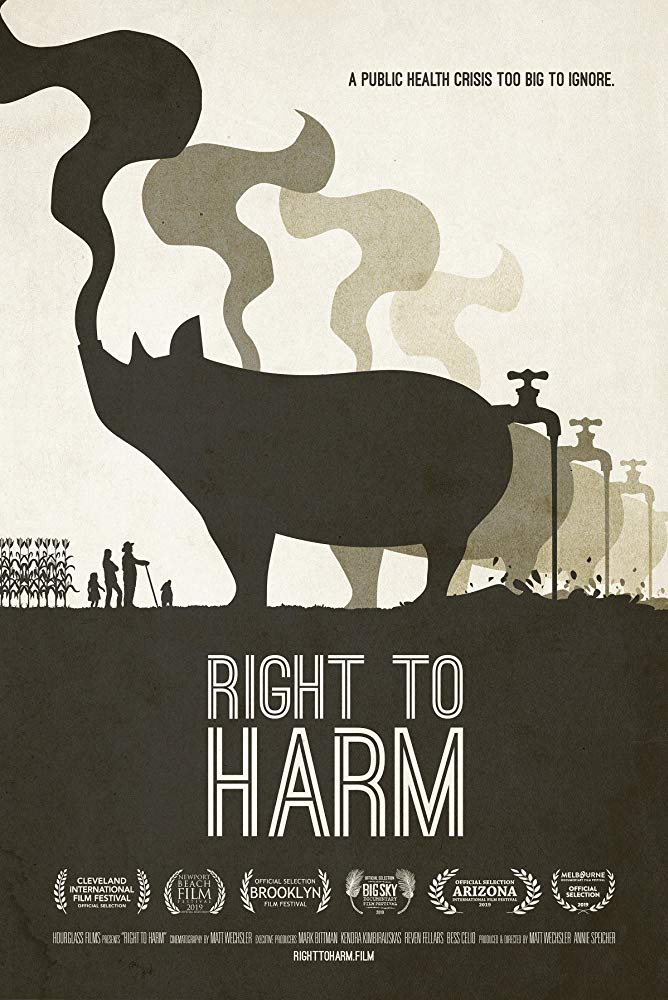Local activists held a screening of the documentary “Right to Harm” at the Missouri United Methodist Church on Friday, Aug. 30. A look at the effect of large scale animal farms on rural communities, the documentary was followed by a panel of local activists from the Missouri Rural Crisis Center and the Missouri Coalition for the Environment among others. While the event was free, various organizations accepted donations as part of the show.
The night began with an introduction from John E. Ikerd, MU professor emeritus of Agricultural & Applied Economics. Ikerd, who appears in the film, maintains that the documentary’s focus is not personal but societal.
“It’s not about me, it’s about the people,” Ikerd said. “I’ve become offended by the indignity, disrespect and arrogance with which people in rural communities are treated when they try to stick up for their rights to clean air, clean water and a healthy environment to live in.”
The film showed rural communities across America dealing with the negative aspects of Concentrated Animal Feeding Operations. CAFOs are farms that contain at least 1,000 animal units (equivalent to 1,000 cows, 125 thousand chickens or 2,500 pigs weighing at least 55 pounds each).
People living around CAFOs have found water sources tainted with excessive animal waste (which are sometimes kept in open air lagoons), their property values declining and the air they breathe overpowered with the smell of thousands of animals. Some people lobby their local governments to put a moratorium on CAFO permits, others move away, while others seek more sustainable forms of farming. Activists insist throughout the film that the government is not properly regulating these CAFOs.
“It’s not the right to farm anymore, it’s the right to harm,” Ikerd said in the documentary.
After the showing, a panel of local activists answered community questions. For panel member and host of KOPN’s Food Sleuth Radio, Melinda Hemmelgarn finds the Missouri Rural Crisis Center a good resource to handle the issue of CAFOs.
“They have the best information on how to prevent the spread of CAFOs,” Hemmelgarn said. “They can give you talking points if you want to get involved politically.”
Sophomore Sterling Siemens found a new understanding of agricultural issues in Right to Harm.
“I thought it was very informative,” Siemens said. “I was definitely educated on what exactly happens with factory farming, but most importantly how people… are adversely affected in terms of their health and their loved one’s health.”
_Edited by Janae McKenzie | [email protected]_







